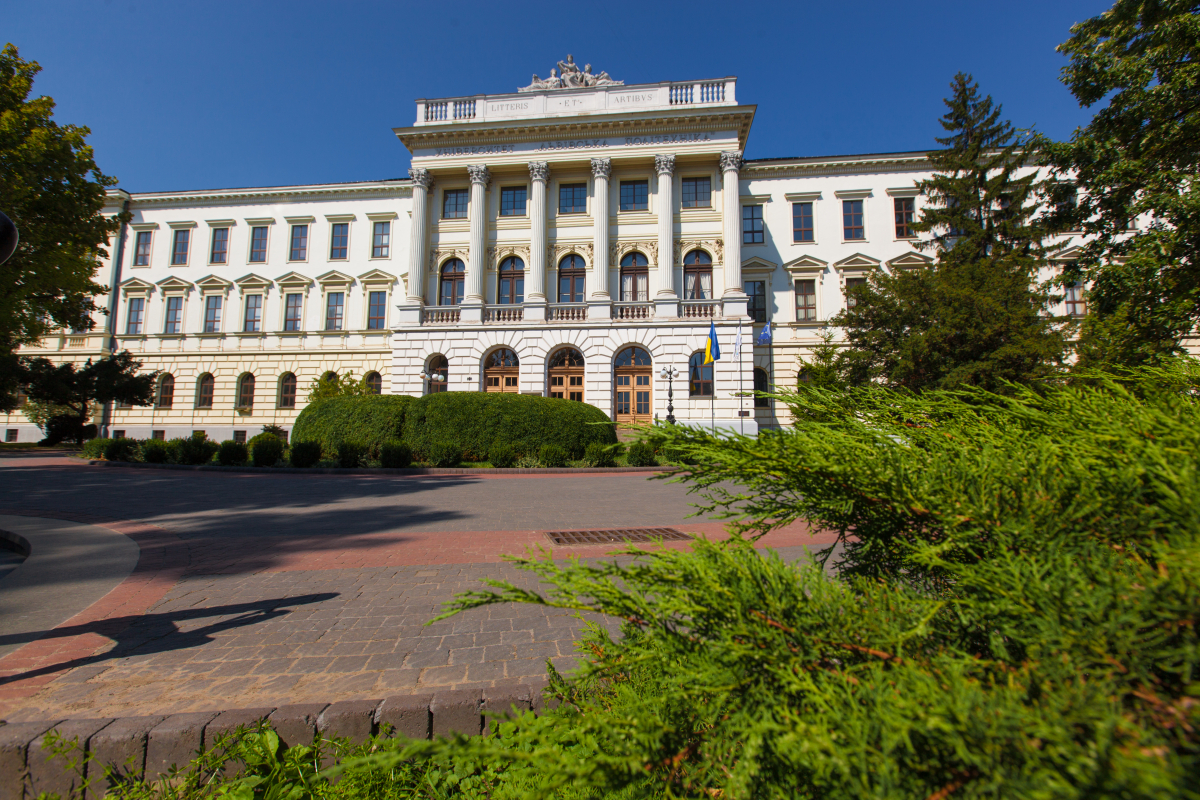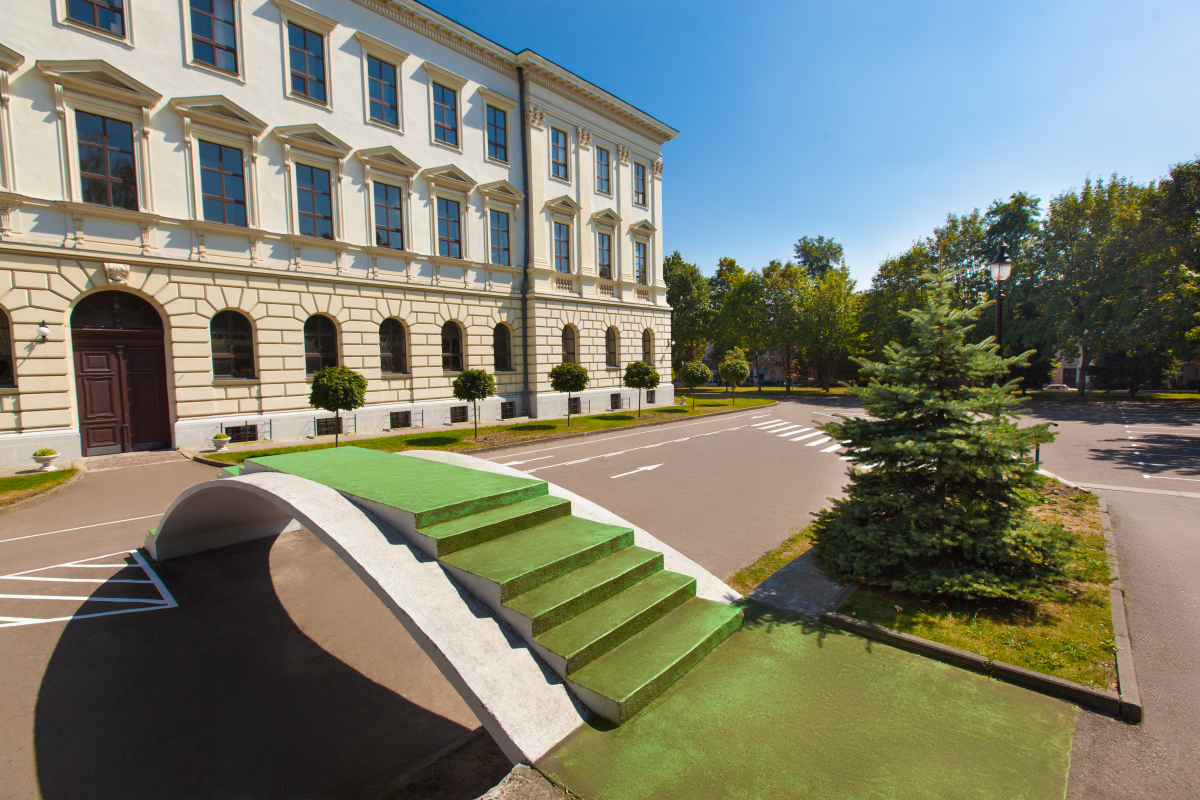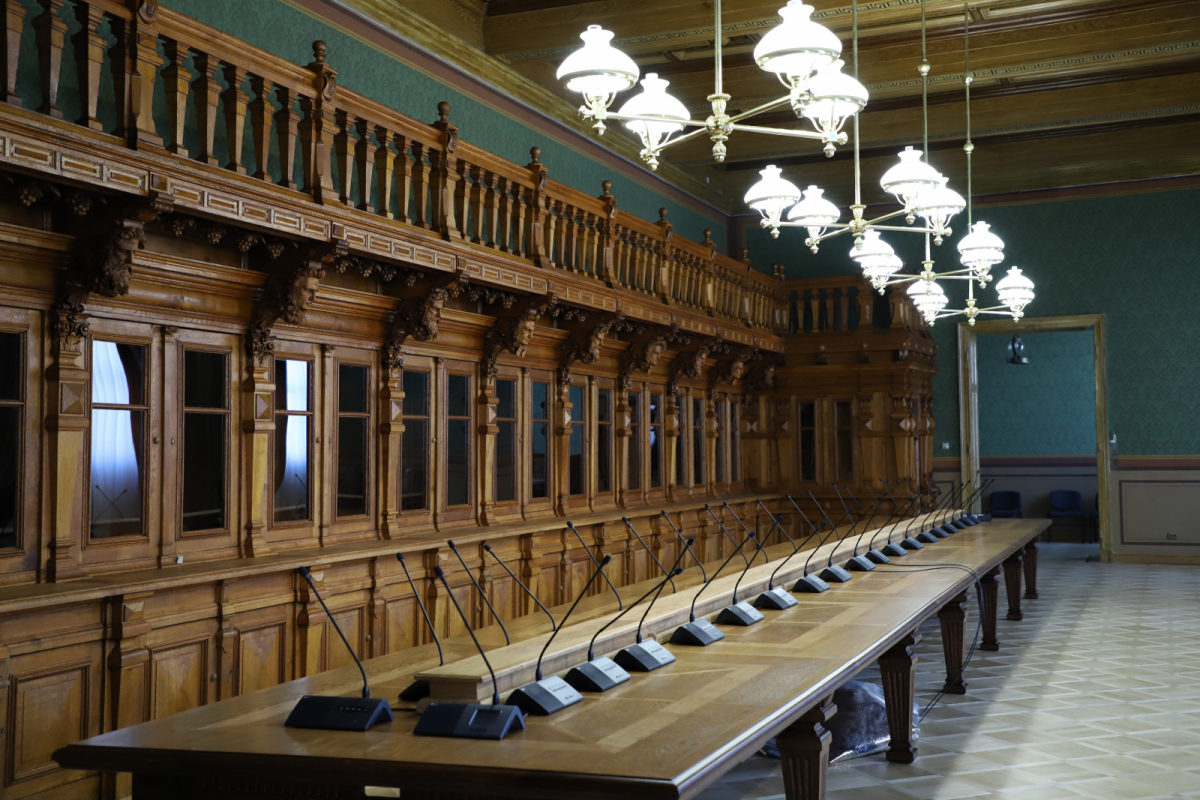Prospectus “Lviv Polytechnic National University”
The mission of Lviv Polytechnic National University is to form future leaders who work wisely, creatively, and effectively.
The vision is to become the best university in Ukraine in terms of international and national rankings.
Our values: professionalism, patriotism, integrity, academic freedom, striving for change, spirituality, and traditions.
We strive to create a unique environment at Lviv Polytechnic National University, with modern academic, scientific, and managerial standards, in which talented students and teachers interact effectively. Corporate and universal values and conditions conducive to studying, working environment, and harmonious development of the individual are provided.
Our advantages:
- 200 years of experience of educational and scientific activities;
- enters the top 800+ universities in the world (World University Rankings 2020);
- high-quality education, modern curriculums and international recognition of diplomas;
- education from Bachelor’s and Master’s degrees to Ph.D. and Doctor of Science;
- English training programs;
- education abroad for academic mobility and dual degree programs;
- an innovative environment and developed infrastructure;
- available cost of education and living;
- possibility of getting accommodation in the University hostels;
- 10/ Bright student life in the cultural capital of Ukraine.
Information About the National System of Higher Education
Ukraine’s higher education system is regulated by the Constitution of Ukraine, the Laws of Ukraine «On Education», «On Higher Education», «On Scientific, Research and Development Activity», by ministerial and central government orders, and by international agreements which Ukraine has concluded in compliance with domestic and international law.
Education and training in Ukraine’s higher education system is delivered at the following higher education levels:
- initial level (short cycle) of higher education, which corresponds to Qualification Level Five in the National Qualifications Framework;
- a first level of higher education (bachelor level), which corresponds to Qualification Level Six in the National Qualifications Framework;
- a second level of higher education (master level), which corresponds to Qualification Level Seven in the National Qualifications Framework;
- a third level of higher education (doctoral level), which corresponds to Qualification Level Eight in the National Qualifications Framework;
- research level of higher education (habilitation), which corresponds to Qualification Level Nine in the National Qualifications Framework.
Attaining higher education at each of these levels requires successful completion of a relevant program of study (vocational or academic) or research program that leads to the award of a relevant higher education degree: junior bachelor; bachelor; master; doctor of philosophy; doctor of sciences.
A junior bachelor's is a vocational degree acquired at the initial (short-cycle) level of higher education and is awarded by a higher education institution upon successful completion by the student of a vocational program of study comprised of 90-120 ECTS credits.
Bachelor's is a degree acquired at the first level of higher education and is awarded by a higher education institution upon successful completion of a professionally-oriented bachelor's program comprised of 180-240 ECTS credits. The workload required for the award of a bachelor's degree to a student who is continuing studies after having been awarded a relevant junior bachelor's degree shall be defined by the higher education institution.
Master's is a degree acquired at the second level of higher education and is awarded by a higher education institution upon successful completion of a relevant academic or professionally oriented program. A professionally-oriented master's program is comprised of 90-120 ECTS credits; an academic program is comprised of 120 ECTS credits.
A Master's degree in medical, pharmaceutical, or veterinary fields is awarded to students who are accepted by a higher education institution after completion of full general secondary education to a relevant continuous program of study (i.e. first and second levels combined) comprised of 300-360 ECTS credits, and is awarded upon its successful completion.
A document certifying the award of a higher education (research) degree is issued to a person who has successfully completed a vocational, professional, academic, or research program, and has passed the attestation requirements of the relevant program. The following types of documents are established to certify higher education (research) degrees at the relevant levels: junior bachelor diploma; bachelor diploma; master diploma; doctor of philosophy diploma; doctor of sciences diploma.
The bachelor's, master's, doctor of philosophy, and doctor of sciences diplomas are each appended by a Diploma Supplement produced according to European standards, which provides structured information about the completed course of study.
Ukraine’s system of higher education quality assurance is comprised of:
- a system by which higher education institutions ensure the quality of educational activity, and of delivered higher education programs (the institution’s internal quality assurance system);
- a system of external quality assurance for higher education institutions and higher education programs (the national quality assurance system of higher - education, including national standards for higher education institutions and for delivered programs);
- a system of higher education program quality assurance verification by the National Higher Education Quality Assurance Agency and by independent quality assurance agencies empowered to assess and ensure the quality of higher education.
For more information about the national higher education system refer to the Ministry of Education and Science of Ukraine official website.
Studying of foreigners in Lviv Polytechnic began over half a century ago in 1961. Now the university has nearly 300 foreign students, which are directed by the Ministry of Education and Science of Ukraine and who are trained at the expense of individuals.
Among the current students-foreigners citizens of Lviv Polytechnicthere are citizens from almost 50 countries, mostly from Morocco, Ecuador, Congo and Angola. There are also the representatives of Egypt, Moldova, Jordan, Iraq, Zambia, Georgia, Lithuania and Belarus.
Lviv Polytechnic in the ranking among Higher education institutions 2022
|
Rankings of Lviv Polytechnic |
Place |
|
|
International rankings |
||
|
|
№ in the ranking |
№ in Ukraine |
|
Times Higher Education World University Rankings 2022 |
601-800 |
2 |
|
801-1000 |
3 |
|
601-800 |
1 |
|
301-400 |
1 |
|
201-250 |
1 |
|
401-600 |
1 |
|
QS World University Rankings 2022 |
801-1000 |
6 |
|
101-150 |
1 |
|
551-600 |
3 |
|
QS EECA University Rankings 2021 |
98 |
4 |
|
Webometrics Ranking of World Universities 2021 |
3306 |
16 |
|
UI Green Metric World University Rankings 2020 |
629 |
7 |
|
U-Multirank 2021 |
|
|
|
Co-authored publications with industry partners |
TOP 25 |
|
|
International joint publications |
TOP 25 |
|
|
National rankings |
||
|
Academic rating «ТOP-200 Ukraine» 2021 |
4 |
|
|
Consolidated rating of higher education institutions of Ukraine 2021 |
6 |
|
|
The rating according to the scientometric database SciVerse Scopus 2021 |
7 |
|





